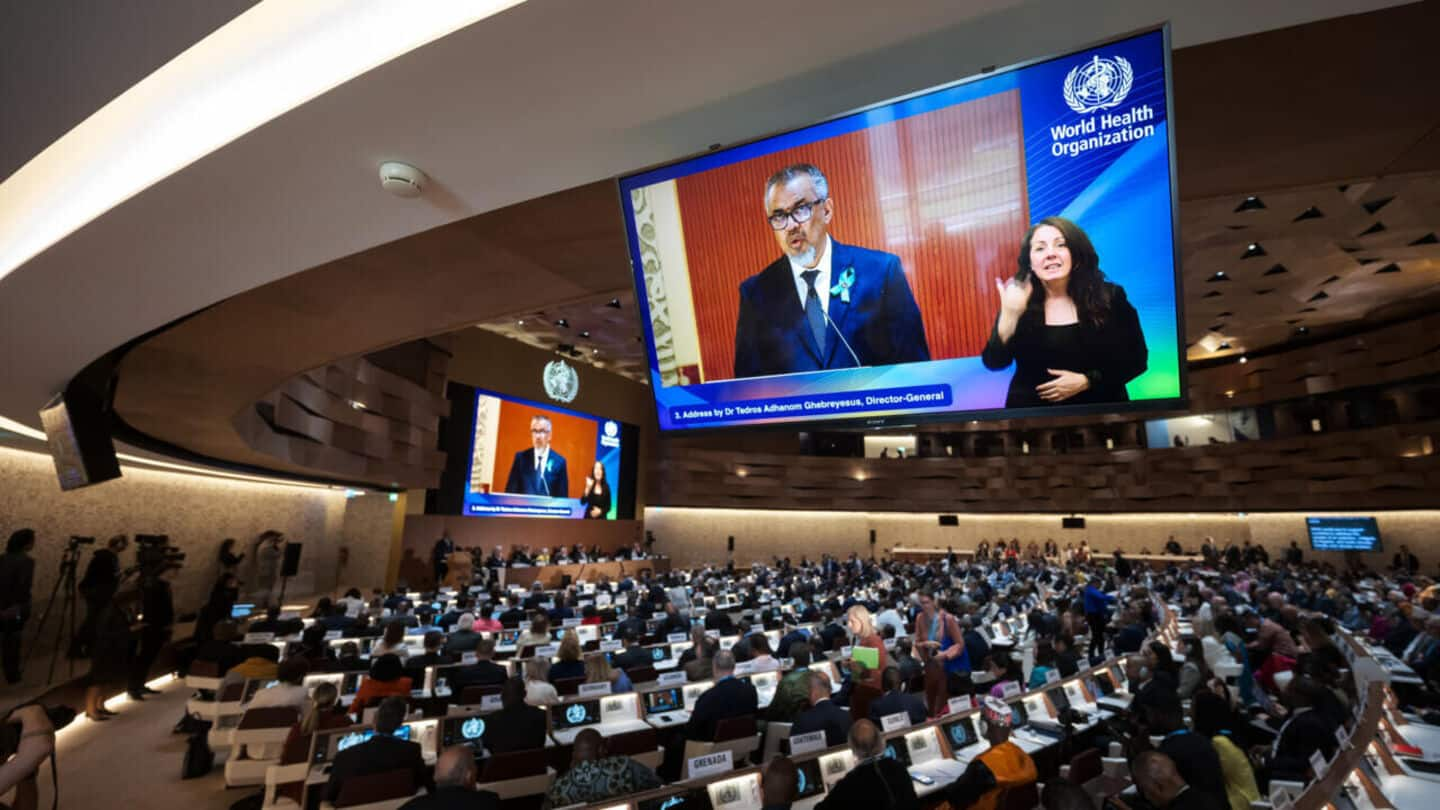
WHO members approve treaty to improve pandemic preparedness
What's the story
The World Health Organization (WHO) has taken a major step toward global pandemic preparedness with its member states voting in favor of a new treaty. The decision was made at the World Health Assembly, where 124 countries supported the draft accord. Slovakia called for a vote on Monday as its vaccine-skeptic prime minister urged the country to challenge the agreement. No country voted against it, although 11 nations, including Poland and Israel, chose to abstain from the vote.
Treaty goals
New treaty aims to address pandemic preparedness inequities
The new treaty seeks to address structural inequities in the development of drugs, vaccines, and health tools. It draws lessons from the COVID-19 pandemic that claimed millions of lives between 2020 and 2022. WHO Director-General Tedros Adhanom Ghebreyesus welcomed the vote as a step toward making countries safer from pandemic threats. He said, "Governments...are making their countries...safer from the threats posed by pathogens."
Adoption process
Formal adoption and ratification process of treaty
The draft accord, which addresses structural inequities about how drugs or vaccines and health tools are developed, following lessons learned from the COVID-19 pandemic, which killed millions of people, will be formally adopted in a plenary session in Geneva. However, it won't come into force until an annex on pathogen sharing is negotiated, which could take up to two years. After this negotiation period, states will have to ratify the accord for it to become legally binding.
Funding impact
US funding cuts and global cooperation
The treaty's adoption comes after three years of tough negotiations and is seen as a win for global cooperation. The talks were complicated by the United States's decision to withdraw from WHO funding under President Donald Trump. Despite being the largest contributor, the US will not be bound by this new pact due to its withdrawal process initiated in January.